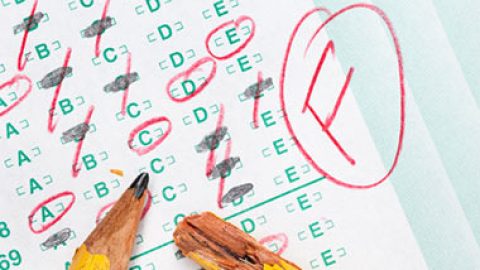
A terrified student about to start studying for an exam
Most students tend to leave their studying until the very last minute before their exams. For most students this type of studying has yielded average if not poor academic results. However it is not only those who leave their studying until the last minute who yield average to poor academic grades; there those who study throughout the semester but still end up failing their examinations. Failure in examinations is not always attributed to one’s intellectual weakness, but it can be due to one’s lack of proper study planning. In this guide we will provide you with some study tips to help you prepare for your lectures and examinations.
1.Study ahead of your exam
Don’t leave your studying until the last minute before your exam. Even though some students seem to flourish on last minute cramming, for most students this is not the most effective method to prepare for an exam. It is advisable to set a study timetable and plan your studies according to the examinations you have to sit for. Avoid focusing on one module and neglecting the others. Balance your studies for each module. Remember when you fail to prepare, you are preparing to fail.

A good study discipline helps you to prepare without stress
2.Find a good study place
Create a conducive environment for studying. Make sure your chair is comfortable, you have good lighting, and that you have enough space to spread out your books and notes. It is advisable to get rid of distractions such as video games, TV, social media, etc. Create a comfortable environment for you to focus as much as possible.
3.Review and revise

Study discussions help reinforce what you know and identify gaps in your understanding
One way to prepare for examinations is to revise using past exam papers. Revising using past exam papers helps you to familiarize to the format of the exam questions, and it also enables you to practise on the timing for the exam. Make a habit of also going over the topics/chapters you studied in class. Reviewing the topics/chapters you have studied in class helps you to understand the concepts and helps you to remember. Below are a few methods you can use to revise:
* Quiz
* creating your own study materials – flash cards, notes, etc
* self-testing – taking a past examination
4.Create study groups with your friends
Organize with your friends to meet up and study together. Have discussions and ask questions as they may answers to your questions, and vice versa. Set a study schedule and meet regularly.
5.Take regular breaks

There is no substitute for a good break. Do yourself a favour and take regular breaks!
Studying for long periods can be ineffective if no breaks are taken. It is advisable to take short breaks in between your studies. This can be a short walk, going to the gym, or even snacking on some food. Taking breaks not only helps you to focus, but it also boosts your productivity.
6.Get enough sleep
It is inadvisable to stay up all night studying before exam day. Get enough sleep the night before your exam. Most students believe that spending the night studying prior to exam day will improve their exam performance. However studies have shown that students who spend more time studying way before the exam, and less time cramming the night before the exam perform better.
Preparing for lectures:
- Read the course outline/syllabus to understand what the course entails.

Good sleeping habits help you perform at your best
- Read or skim through the recommended study materials before the lecture.
- Review the previous lecture notes before your next lecture
- Make sure you have all the necessary materials before attending your lecture – pens; notebook; calculator; etc













Good service
Things should be followed from time to time….